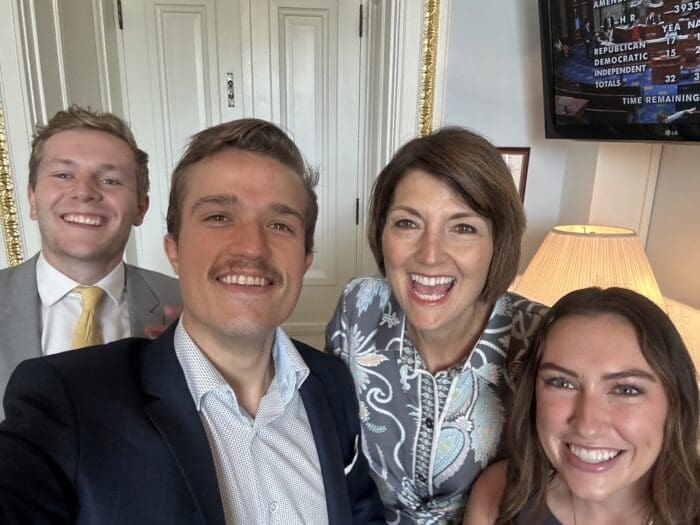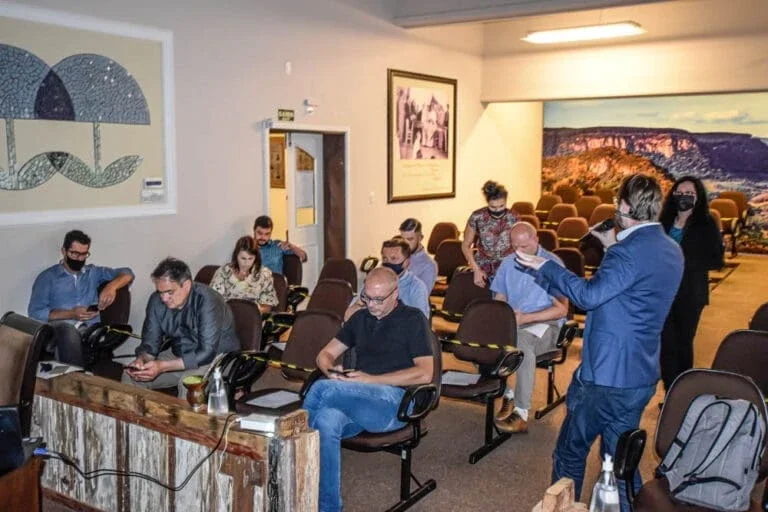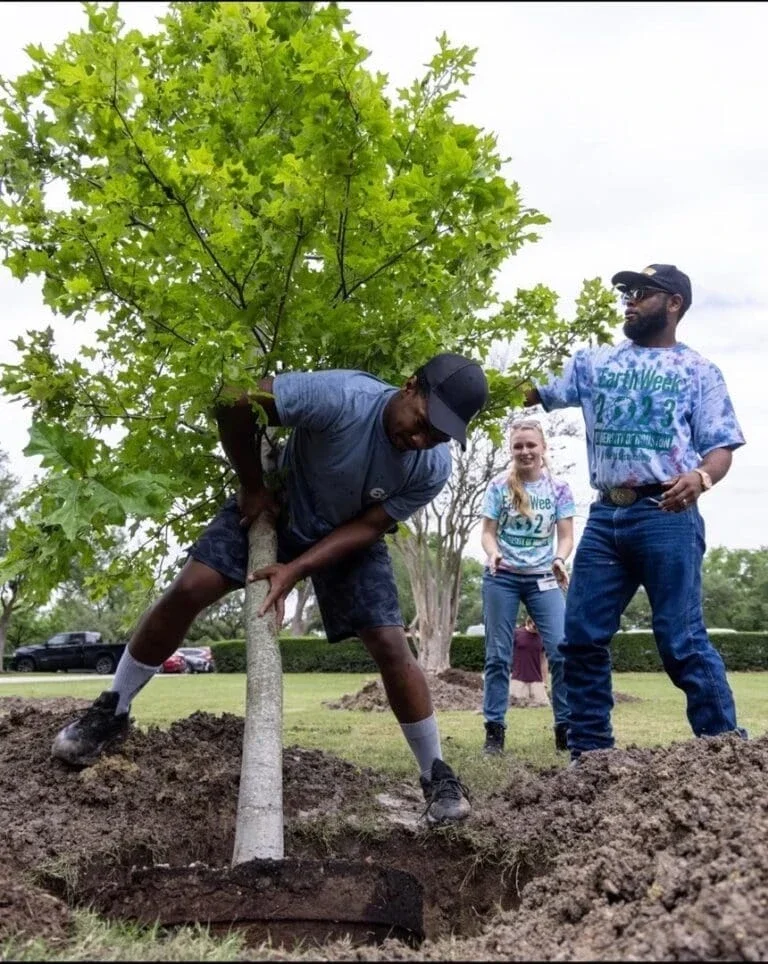
Breaking Through Silos
The nonprofit, founded in 2017 and run by 20-something conservatives, believes economic and environmental success go hand-in-hand, and is dedicated to building the climate movement of the future.
Their three-pronged approach involves forging unexpected alliances, endorsing limited-government, market-based climate solutions, and harnessing the influence of an emerging cadre of young Republican voters.
“To achieve this, we are committed to collaborating with both sides. The National Audubon Society. The Nature Conservancy. Dream.org,” said Karly Matthews, ACC’s Vice President of Communications.
“We don’t see eye to eye on everything. Nuclear energy, for instance,” Matthews said. “But we can agree that we need to streamline our permitting process and get more clean energy projects on the grid. And we agree that we need to break out of silos.”
As part of The Rockefeller Foundation’s historic five-year, $1 billion commitment to equitably advance the climate transition by igniting innovative and collaborative partnerships, the Foundation and ACC are collaborating to host a non-partisan youth roundtable at the University of Southern California Schwarzenegger Institute for State and Global Policy in early 2024.
The goal is to foster an honest, productive conversation between top youth leaders from both sides of the aisle to identify concrete solutions and policies.
The grant is part of The Rockefeller Foundation’s recently established Climate Exploration Fund (CEF), aimed at uncovering innovative methods to address the climate crisis, both through mitigation and adaptation – a kind of testing ground to expand our thinking and networks to help inform our new climate strategy.
The CEF explores topics within The Rockefeller Foundation’s program areas but also seeks to understand cross-cutting themes – such as gender, migration, or water rights – to deepen the Foundation’s knowledge and its engagement in the climate community.
Why it matters
- 0%%
of Republicans under the age of 30 prioritize developing alternative energy sources
- 0%%
of eligible U.S. voters in 2024 will be Millennials and Gen Z
- 0ThousandThousand
young Republicans from all 50 states are ACC members
Climate change is too large a problem to be solved by any one political side. All parties have to bridge the divide to develop solutions that improve the quality of life for all. We see this round table as just the first step on a long road of non-partisan collaboration on climate change.
Danielle GeanacopoulosManaging Director for Government RelationsThe Rockefeller Foundation
Eyeing the Future as well as the Present
ACC’s mission is to recruit and amplify the voices of right-of-center climate activists and foster constructive conversations. Their membership currently stands at about 25,000, spanning all 50 states. But if they can mobilize an army of young voters, their potential for impact exceeds those numbers.
“In 2028, a majority of eligible voters will be Millennials and Gen Z,” Matthews said. “We see ourselves as the future of the conservative movement, as well as an important part of its present.”
Even in 2024, Millennials and Gen Z will make up 48.5 percent of the eligible voters, according to the Brookings Institute, which underscores the need for party leaders to heed their priorities.
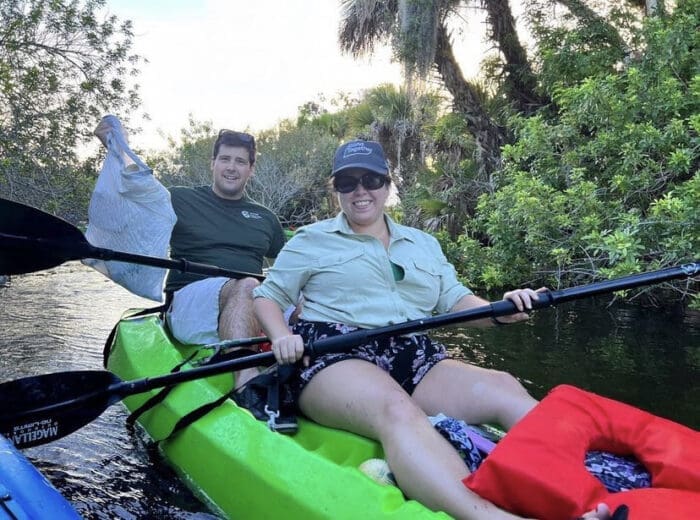
Nearly eight-in-ten Democrats describe climate change as a major threat to the country’s well-being, up from about six-in-ten a decade ago, according to a recent Pew poll. By contrast, about one-in-four Republicans consider climate change a major threat, a share that’s almost identical to 10 years ago.
Among young Republicans, though, the data tells a different story.
While 75 percent of Republicans aged 65 and older prioritize expanding oil, coal, and natural gas production, 67 percent of Republicans under the age of 30 prioritize developing alternative energy sources, Pew shows.
And 69 percent of young Republicans ages 18-34 say they worry a great deal or fair amount about the environment, compared with 46 percent of Republicans age 55 and older, according to a Gallup poll.
ACC Action, the organization’s 501(c)(4) affiliate, has endorsed Republican congressional candidates who advocate for policies to fight climate change.
“More and more, older Republicans are having to grapple with the fact that if they want to stay electorally relevant for younger generations, they have to do something about this issue,” said ACC’s president, Chris Barnard.
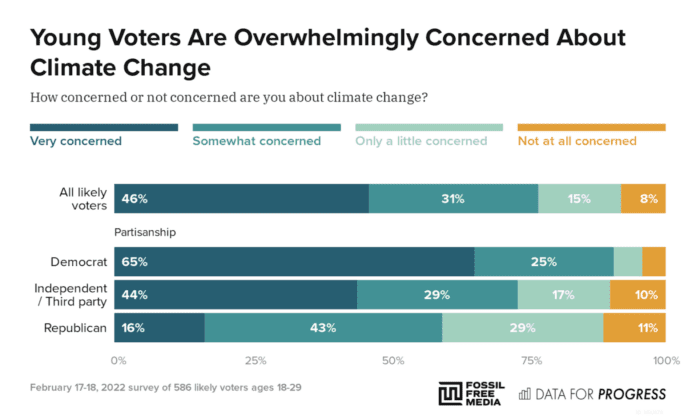
The Climate Commitment
But do what, exactly? Phase out gas-powered vehicles? Offer businesses tax incentives to reduce emissions or create carbon-capture technology? Build more solar and wind farms?
And what role should the government play?
Discussing approaches and searching for common ground while building a collaborative network is part of the motivation for the youth round table.
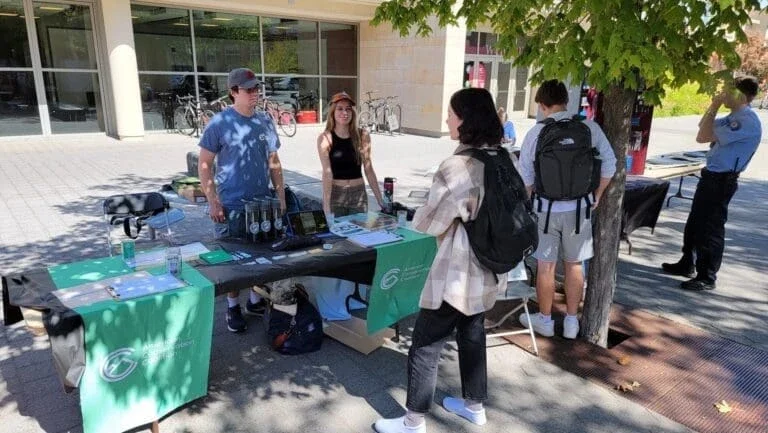
To break through what it calls a dynamic of alarmism versus inaction, ACC has created “The Climate Commitment,” a six-point proposal that calls for using capitalism and an America-first approach to spur innovation.
“Harnessing market forces to create better, and even more cost-effective, energy solutions is the answer,” Barnard recently wrote. “We should prioritize the development and deployment of low- and zero-carbon technologies that are affordable — and then export them around the world to meet power demand while reducing emissions. Let’s export U.S. innovation, not regulations.”
Matthews said ACC is optimistic about meeting the challenge. “We have to move beyond the dynamic of alarmism versus inaction,” she said.
Her work with ACC is motivated by her passion for the environment, not politics.
“I grew up in Pennsylvania in a house across from a cornfield, loving nature,” she said. “I didn’t understand why environmental issues were so polarizing. I knew conservation and conservatism were compatible. We can spearhead solutions. And we can drive our party forward.”
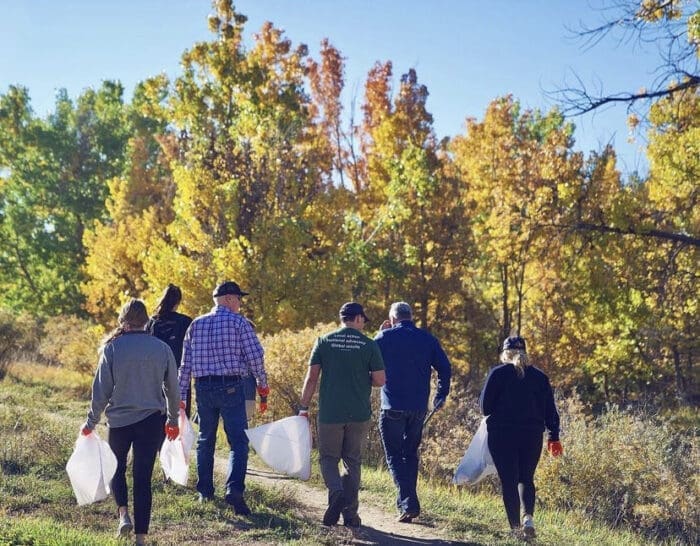
More in this Matter of Impact Edition
How To Chart a Course for Food Security in a Changing Climate
New research aims to identify the most carbon-efficient methods to cultivate rice.
Read MoreComposting for the Climate and Environmental Justice
A pioneering initiative takes a bite out of food waste and environmental injustice, creating a lasting impact in Baltimore.
Read More